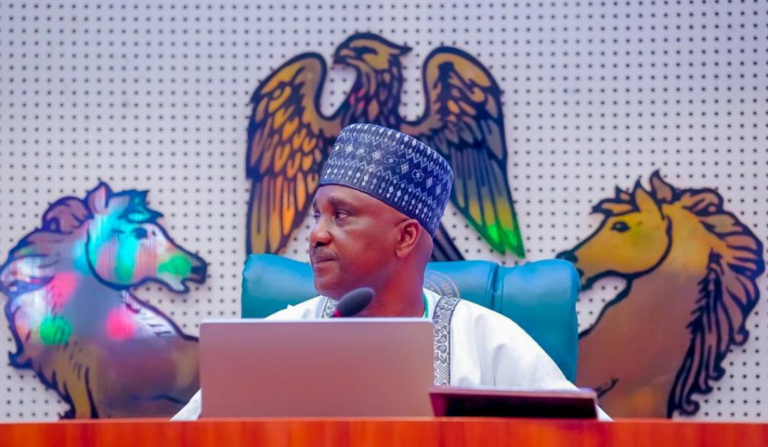The Speaker of the House of Representatives, Rep. Abbas Tajudeen, has officially inaugurated an Ad hoc committee tasked with investigating the mismanagement of funds allocated for oil spill clean-up efforts in the Niger Delta region.
During the ceremony held in Abuja on Friday, Mr Tajudeen expressed his confidence in the committee’s ability to produce a fair, just, and balanced report.
Represented by Rep. Bello Kumo (APC-Gombe), Mr Tajudeen stressed the necessity of a comprehensive investigation to enable the House to propose effective solutions to the challenges posed by oil spills in the Niger Delta.
“It is crucial to understand the underlying causes of the mismanagement. We must examine all aspects of the funds allocated for clean-up efforts and assess the capabilities of the managers appointed by the government to oversee these funds,” he stated.
“We must determine whether there was accountability throughout the entire process of managing the clean-up funds; by doing so, we can develop appropriate solutions,” he added.
In his address, the committee chairman, Rep. Okpolupm Etteh (PDP-Akwa Ibom), highlighted the years of environmental degradation and catastrophic damage experienced in the Niger Delta due to oil exploration and recurrent spills.
He noted that various government agencies have been established or designated to conduct environmental remediation and clean-up operations in response to these issues.
“Regrettably, alarming reports of alleged mismanagement, inefficiency, and poor coordination have overshadowed these initiatives.
“Moreover, this House has received reports indicating that the funds allocated for clean-up efforts have failed to yield the expected results, leaving affected communities in distress, livelihoods at risk, and public trust eroded.
“Our committee has been entrusted with the vital responsibility of uncovering the truth, assessing the effectiveness of existing interventions, and proposing reforms for sustainable solutions.
“Our objectives are well-defined. We will scrutinise the utilisation of funds earmarked for environmental remediation, evaluate the actual execution of clean-up projects, pinpoint deficiencies within the institutional framework, and engage with all pertinent stakeholders, including host communities, experts, and civil society.
“Most importantly, we will recommend specific actions to enhance performance and restore public trust,” he stated.
The chairman clarified that while the committee is not on a witch-hunt, it will not shy away from asking difficult questions to uncover the truth for future generations and to maintain the integrity of its mission.
He committed to operating transparently, seeking broad consultations, and conducting field visits to observe the situation firsthand.
The lawmaker emphasised that agencies will be held accountable, community perspectives will be respected, and conclusions will be drawn based on factual evidence rather than emotions.
He appealed for the cooperation of all stakeholders, including government agencies, communities, civil society, and the media, to assist the committee in effectively fulfilling its mandate.
(NAN)

